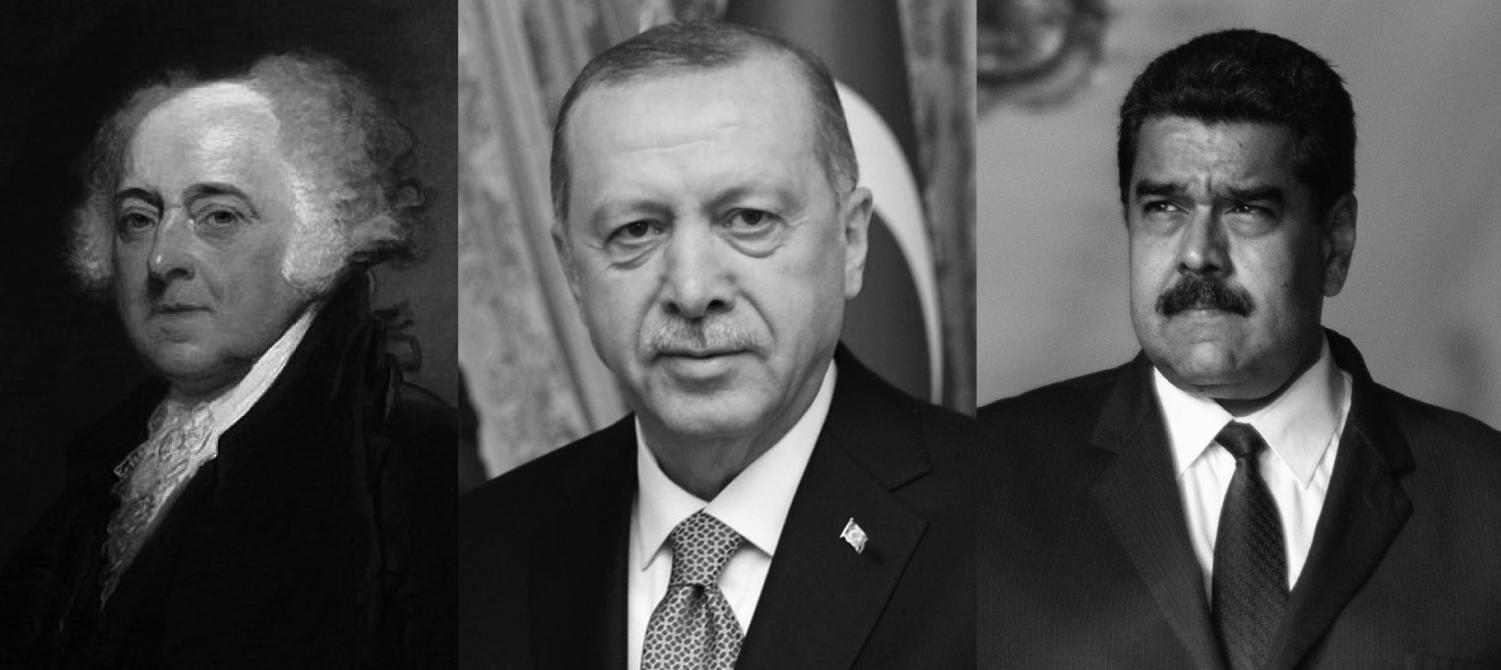President John Adams’ 1797 inauguration was a historic event for humanity. Though Adams was an unremarkable president who lost reelection just four years later, his presidency proved that the peaceful transition of power was not just a fantasy, and that strong democratic institutions could make it a reality.
For centuries, western civilization had largely operated under the premise of monarchy as a stable system of government. Leaders were born into their position, and were not accountable to the population they governed. The public’s only recourse was a violent revolution, which inevitably led to further tyranny.
John Adams’ presidency broke that cycle, proving that elections could result in a stable, functioning democracy.
Over the past 200 years, accepting defeat in elections and handing over power has become increasingly common, in stable and unstable democracies and even in some autocracies.
For example, Chinese President Hu Jintao, who led an undoubtedly authoritarian government, gave up his government titles to Vice President Xi Jinping exactly 10 years after his term began, as had become the norm in China. For a fleeting moment, it seemed that China might survive as a stable autocracy by embracing this orderly transition in leadership.
Sadly, this apparently global norm has begun to recede; and with the decline of a peaceful transition of power, democracy too shall find itself at risk around the world.
In the U.S., Georgia gubernatorial candidate Stacey Abrams acknowledged that she lost the 2018 governor’s race, but refused to concede by declaring that the election, citing alleged voter suppression, was illegitimate.
Meanwhile, Governor Matt Bevin of Kentucky, ordered a recount using his office’s power after losing reelection Nov. 7, refusing to concede until a week after the results had been called.
Meanwhile, Bolivian President Evo Morales, who had been repeatedly asked to step down for years, rigged the 2019 election to stay in office. This blatant power grab sparked nationwide protests, resulting in his exile to Mexico.
What history has shown time and time again is that as leaders hold onto power for too long, the strength of institutions begins to rot.
Perhaps nowhere is this pattern more prevalent than Venezuela. Though socialist President Hugo Chavez was immensely popular for his policies, presiding over a decade of growth and prosperity, his appointed successor Nicolas Maduro, who continued these same policies, drew broad public criticism.
Chavez’s overextended policies forced Maduro into the unenviable position of having to abandon his ideology or leave power. Choosing the former, Maduro rigged an election, causing a constitutional crisis, mass protests, and a dispute in the legitimacy of his presidency.
The same could be observed in Turkey, where elected President Recep Tayyip Erdogan led the country through economic turmoil, earning vast international and domestic acclaim. However, his increasingly religious fundamentalist rhetoric resulted in an unsuccessful military coup. After the coup was defeated, Erdogan consolidated power and altered the constitution, giving him unprecedented executive powers.
The Turkish people have, however, recently soured on Erdogan, delivering him a series of humiliating defeats in early 2019 local elections. This rebuke of Erdogan’s tenure proves that he has overstayed his welcome in leading Turkey for nearly 20 years.
History has proven that long-term leaders, while initially popular and successful, shall inevitably begin to fail. When that occurs, desperate power grabs and political turmoil threaten democracy and the future of civil rights for that country’s people.
It is therefore essential that politicians regain the capacity to concede, to admit defeat and leave office when their time is up. Just as George Washington retired, making way for John Adams, autocrats like Maduro and Erdogan must step aside to make way for the restoration of democracy.










